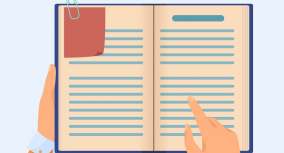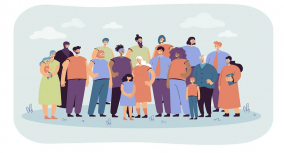This article by Custom-Writing.org experts contains all the information about the main characters in Pride and Prejudice by Jane Austen: Elizabeth Bennet, Fitzwilliam Darcy, Jane Bennet, Mr. Bingley, Mr. Wickham, & others. In the first section, you’ll find the Pride and Prejudice character map.
🗺️ Pride and Prejudice: Character Map
Below you’ll find a Pride & Prejudice character map.

👧 Elizabeth Bennet
Elizabeth is one of the five Bennet sisters, the second most beautiful among them. Lizzy has intelligent features, a slender figure, and “a lively, playful disposition.” She is the least favorite daughter of her mother. The latter is unhappy as Lizzy rejected the marriage proposal of Mr. Collins. Elizabeth is proud of her intelligence and laughs at foolish things other people do. However, her wit is not as sarcastic as her father’s.
Eliza wants to marry for love and disapproves of Charlotte’s choice to marry for money and stability. She meets Darcy at a ball in Meryton; then they dance at Netherfield ball. Subsequently, she falls in love with him. Her sparkling wit and intelligence won Darcy’s love, too. It is her significant advantage on the background of superficial and arrogant Caroline.
Her first opinion about Darcy was incorrect, and the entire novel tells how her prejudice gets dispelled. Despite this mistake, and another one, when she thought Wickham was a good man, she understands people better than anyone in the book. For instance, she knew that Mr. Collins was a fool, Lady De Bourgh was a tyrant, and her mother undermined the image of the entire family. Her judging plays a significant role in the reader’s perception of other protagonists.
Elizabeth Bennet’s Quotes from Pride & Prejudice
Indeed, sir, I have not the least intention of dancing. I entreat you not to suppose that I moved this way in order to beg for a partner.
Pride & Prejudice,
chapter 6
In such cases as this, it is, I believe, the established mode to express a sense of obligation for the sentiments avowed, however unequally they may be returned. It is natural that obligation should be felt, and if I could feel gratitude, I would now thank you. But I cannot—I have never desired your good opinion, and you have certainly bestowed it most unwillingly.
Pride & Prejudice,
chapter 34
My beauty you had early withstood, and as for my manners—my behaviour to you was at least always bordering on the uncivil, and I never spoke to you without rather wishing to give you pain than not. Now be sincere; did you admire me for my impertinence?
Pride & Prejudice,
chapter 60
👦 Fitzwilliam Darcy
Mr. Darcy is a wealthy landlord of Pemberley, a large estate providing him £10,000 a year.
Mr. Darcy is the ideal of an English gentleman. He features all the typical positive and negative traits. Like Eliza, Darcy is proud-hearted and prejudiced. At the same time, he is liberal and sincere. After Elizabeth declined his proposal, Darcy had to rethink his arrogance and selfishness. He even blamed his parents who taught him “to think meanly of all the rest of the world.”
Darcy has no title, and he is not an aristocrat, although his maternal grandfather was Earl Fitzwilliam. Darcy and Elizabeth are of the same social class. Still, Darcy’s fortune is one of the largest among the landed gentry. Once Elizabeth says: “He is a gentleman, I am a gentleman’s daughter; so far we are equal.”
One can assume that Mr. Darcy is kind and caring. When Elizabeth visited his estate with Mr. and Mrs. Gardiner, his housekeeper, Mrs. Reynolds said: “I have never had a cross word from him in my life.” Mr. and Mrs. Gardiner had to change their mind about Darcy. He treated them as a real gentleman. Darcy’s personality is revealed from the positive side only at his place, and later, when he makes Wickham marry Lydia.
Mr. Darcy’s Quotes from Pride & Prejudice
“She is tolerable, but not handsome enough to tempt me; I am in no humour at present to give consequence to young ladies who are slighted by other men.
Pride & Prejudice,
chapter 3
Yes, vanity is a weakness indeed. But pride—where there is a real superiority of mind, pride will be always under good regulation.
Pride & Prejudice,
chapter 11
In vain I have struggled. It will not do. My feelings will not be repressed. You must allow me to tell you how ardently I admire and love you.
Pride & Prejudice,
chapter 34
My real purpose was to see you, and to judge, if I could, whether I might ever hope to make you love me. My avowed one, or what I avowed to myself, was to see whether your sister were still partial to Bingley, and if she were, to make the confession to him which I have since made.
Pride & Prejudice,
chapter 60
👸 Jane Bennet
Jane is the oldest daughter in the Bennet family. She is also the most beautiful one. Jane is close to Elizabeth, as they discuss their matters of the heart. Her kindness contrasts with Elizabeth’s prejudice and judgemental attitude.
Her marriage with Mr. Bingley is just as happy as the one of Darcy and Elizabeth, but it lacks the depth of emotions. Her love for Bingley does not change throughout the novel, even when he leaves Netherfield for London. However, they are compatible, and both see the world through rose-colored glasses, which makes them a perfect match.
Jane Bennet’s Quotes from Pride & Prejudice
He is just what a young man ought to be… Sensible, good-humoured, lively; and I never saw such happy manners!—so much ease, with such perfect good breeding!
Pride & Prejudice,
chapter 4
We must not be so ready to fancy ourselves intentionally injured. We must not expect a lively young man to be always so guarded and circumspect. It is very often nothing but our own vanity that deceives us. Women fancy admiration means more than it does.
Pride & Prejudice,
chapter 24
Tis too much!.. by far too much. I do not deserve it. Oh! why is not everybody as happy?
Pride & Prejudice,
chapter 54
👱 Charles Bingley
At the beginning of the story, his age is 23. His family comes from the North of England. Bingley’s father planned to purchase an estate, so he inherited £100,000 after his father’s death which gave him £5,000 a year. He rented Netherfield estate to see if he likes to be landed gentry before he buys one. At the end of the novel, he purchases “an estate in a neighboring county to Derbyshire,” not far from Pemberley. He is going to live there with his wife, Jane.
He is of a different personality type than Darcy, being good-humored and lively. Unlike Darcy, he likes the Bennets after their first meeting. He is persuadable and probably lacks Darcy’s stiffness.
Mr. Bingley’s Quotes from Pride & Prejudice
It is amazing to me… how young ladies can have patience to be so very accomplished as they all are…They all paint tables, cover screens, and net purses. I scarcely know anyone who cannot do all this, and I am sure I never heard a young lady spoken of for the first time, without being informed that she was very accomplished.
Pride & Prejudice,
chapter 8
👴 Mr. Bennet
Mr. Bennet is the owner of the Longbourn estate, and his social class is higher than the one of Mrs. Bennet. He married Mrs. Bennet hoping to give birth to an heir. After they had five daughters by the irony of circumstances, his hopes seemed to have failed. Therefore, Mr. Collins will inherit Longbourn. Mr. Bennet was never called by his full name in the novel. His favorite daughter is Elizabeth. She resembles him in many aspects: both of them are fond of reading and like making sarcastic comments. He always takes the line of least resistance and prefers to be alone.
Mr. Bennet’s Quotes from Pride & Prejudice
I dare say Mr. Bingley will be very glad to see you; and I will send a few lines by you to assure him of my hearty consent to his marrying whichever he chooses of the girls; though I must throw in a good word for my little Lizzy.
Pride & Prejudice,
chapter 1
An unhappy alternative is before you, Elizabeth. From this day you must be a stranger to one of your parents. Your mother will never see you again if you do not marry Mr. Collins, and I will never see you again if you do.
Pride & Prejudice,
chapter 20
I know your disposition, Lizzy. I know that you could be neither happy nor respectable, unless you truly esteemed your husband; unless you looked up to him as a superior. Your lively talents would place you in the greatest danger in an unequal marriage. You could scarcely escape discredit and misery. My child, let me not have the grief of seeing you unable to respect your partner in life.
Pride & Prejudice,
chapter 59
👵 Mrs. Bennet
Mrs. Bennet is the mother of Jane, Elizabeth, Lydia, Mary, and Kitty. She is a good mother, in a way, because her principal concern is to secure her daughters’ marriage. It was the only possibility for a well-to-do and relatively careless life in those days, as women could not inherit their father’s fortune. Her first name was never mentioned in the novel. The author is describing her as “a woman of… little information, and uncertain temper” She does not stop at showing her nerves and emotions, often making the situation quite embarrassing. Her favorite daughters are Jane and Lydia, for the beauty of the former and the high spirits of the latter.
Mrs. Bennet’s Quotes from Pride & Prejudice
If I can but see one of my daughters happily settled at Netherfield… and all the others equally well married, I shall have nothing to wish for.
Pride & Prejudice,
chapter 3
I am astonished, my dear,.. that you should be so ready to think your own children silly. If I wished to think slightingly of anybody’s children, it should not be of my own, however.
Pride & Prejudice,
chapter 7
Oh! my dear, dear Jane, I am so happy! I am sure I shan’t get a wink of sleep all night. I knew how it would be. I always said it must be so, at last. I was sure you could not be so beautiful for nothing!
Pride & Prejudice,
chapter 55
🎭 Other Pride & Prejudice Characters
Mary Bennet
The third daughter in the Bennet family is the least physically attractive among them. Although she is much more rational than Lydia and Kitty, Mr. Bennet thinks she is silly. She is pedantic and haughty and lacks talent and taste. It became obvious when she embarrassed everyone at Netherfield ball by her poor singing and playing the piano.
Kitty Bennet
Catherine is the fourth daughter of the Bennets. She is always overshadowed by Lydia and limits herself to mirror Lydia’s opinions and wishes. After the marriage of Jane and Elizabeth, she spent most of her time at her elder sisters’ places. She was no more influenced by Lydia, so it had a positive influence on her character traits.
Lydia Bennet
Lydia is the youngest daughter of Mr. and Mrs. Bennet and is 15 at the beginning of the story. Being the favorite child of Mrs. Bennet, she’s bold and spoiled. Elizabeth describes her as being “absolutely uncontrolled.” She marries Mr. Wickham and she is proud of it, even though everyone else understands that it is not for love.
Mr. Collins
William Collins is the heir of the Longbourn estate, being a cousin of Mr. Bennet. He is a clergyman at Lady Catherine’s parish, but he seems to be more concerned with worldly blessings (like the architecture and furniture of his house) than with God. He is narrow-minded and silly, and his opinion about class in society is highly noticeable.
Lady Catherine De Bourgh
She is Darcy’s and Georgiana’s maternal aunt and dreams of marrying her daughter with Darcy. Lady Catherine is haughty and condescending and can communicate only by commands and instructions. She is rude to anyone inferior to her, as perfectly shown in conversation with Elizabeth, when she posed several indelicate questions.
George Wickham
Mr. Wickham is a militia officer. He was the godson of Darcy’s father and inherited a parsonage and some steady income. However, he refused from the heritage and took some amount of money instead. Very soon, he spent all the money on parties, which spoilt his relationship with Darcy. Wickham is money-minded: he lost his interest in Elizabeth as soon as he learned about the large fortune of Ms. King, who he unsuccessfully tried to marry.
He is proficient at making the first impression of being charming and genteel. Mr. Darcy gave him the following description: “Mr. Wickham is blessed with such happy manners as may ensure his making friends—whether he may be equally capable of retaining them, is less certain.”
Charlotte Lucas
At the beginning of the novel, Charlotte is 27, and everyone thinks she would become a spinster. She marries Mr. Collins, though she is much more sensible and intelligent than he is. It was a marriage of convenience for her, as he could guarantee a place of her own and a stable income. Charlotte Collins turns out to be a perfect wife and a competent housewife.
Caroline Bingley
Caroline is Mr. Bingley’s younger sister. She is physically attractive but very conceited. She is contrasted with Elizabeth by being insincere and courtly with Darcy. Ms. Bingley tries to please Darcy with compliments on his handwriting which sounds more funny than pleasant. However, she was clever enough to make up with Elizabeth after Darcy’s marriage because good relations with such a wealthy family can be a benefit.
Georgiana Darcy
Georgiana is Darcy’s younger sister, so he took the figure of the father in her life. She is young, beautiful, and gentle. Caroline Bingley wanted her brother to marry Georgiana, probably to get closer to Darcy. She also was an apple of discord between Darcy and Wickham when the latter tried to seduce her to extort money from Darcy.
Colonel Fitzwilliam
He is Lady Catherine’s nephew and cousin of Darcy and Georgiana. Colonel Fitzwilliam is aware of Wickham’s unsuccessful affair with Georgiana, as he was her guardian since the death of her father. He is a well-bred conservationist with a habit of a wealthy life. He is relatively lacking money, so he will not marry anyone without thinking about a fortune.
Mr. and Mrs. Gardiner
Mr. Edward Gardiner is an intelligent and sensible brother of Mrs. Bennet. His income comes from “a very respectable line of trade,” which refers him to a lower class than Mr. Bennet. His wife, Mrs. Gardiner, is a pleasant and generous woman. The couple has four children.
We hope that the above information on Pride & Prejudice characters is useful. Want to learn more about the novel’s meaning? Then check out the Essay Topics section.






